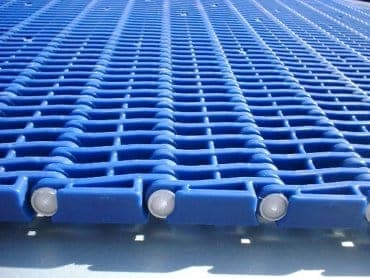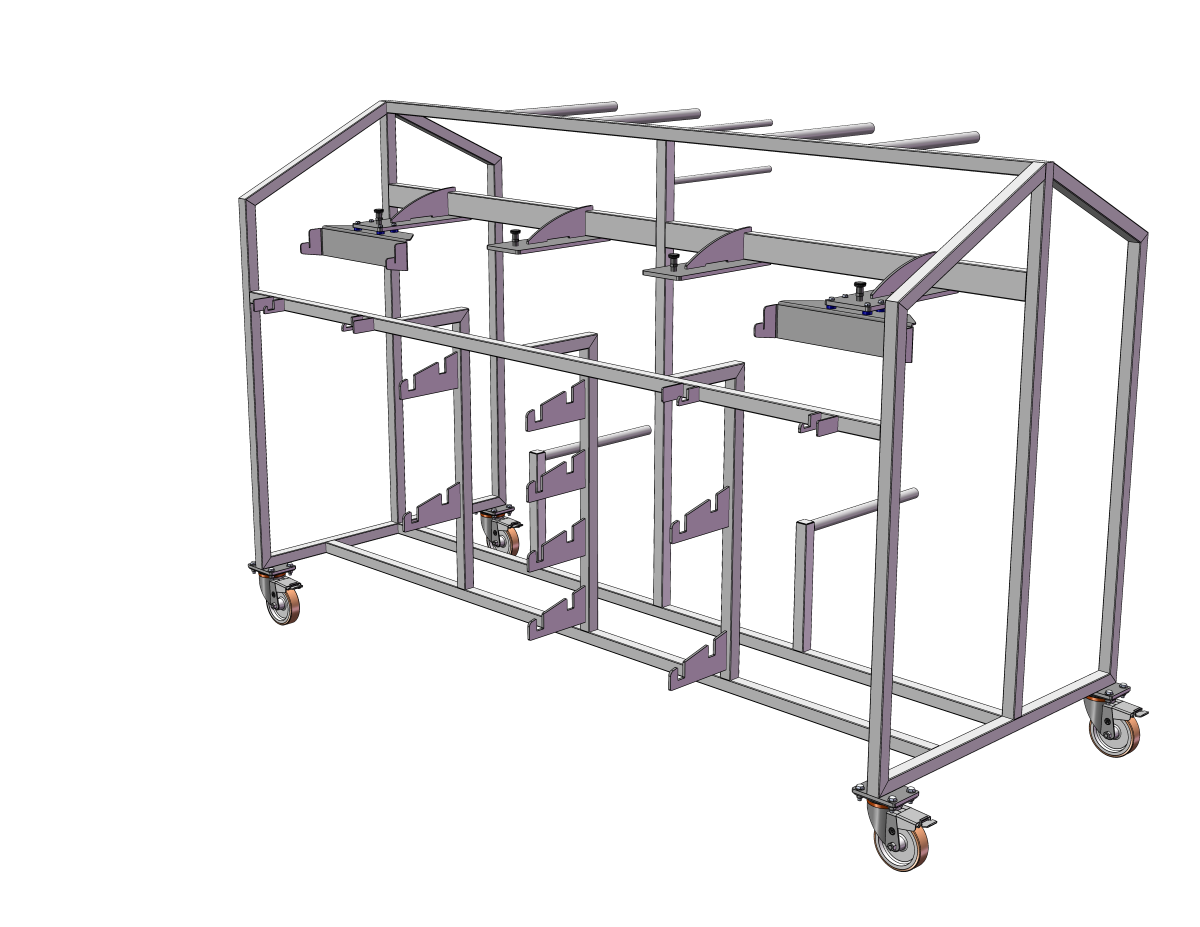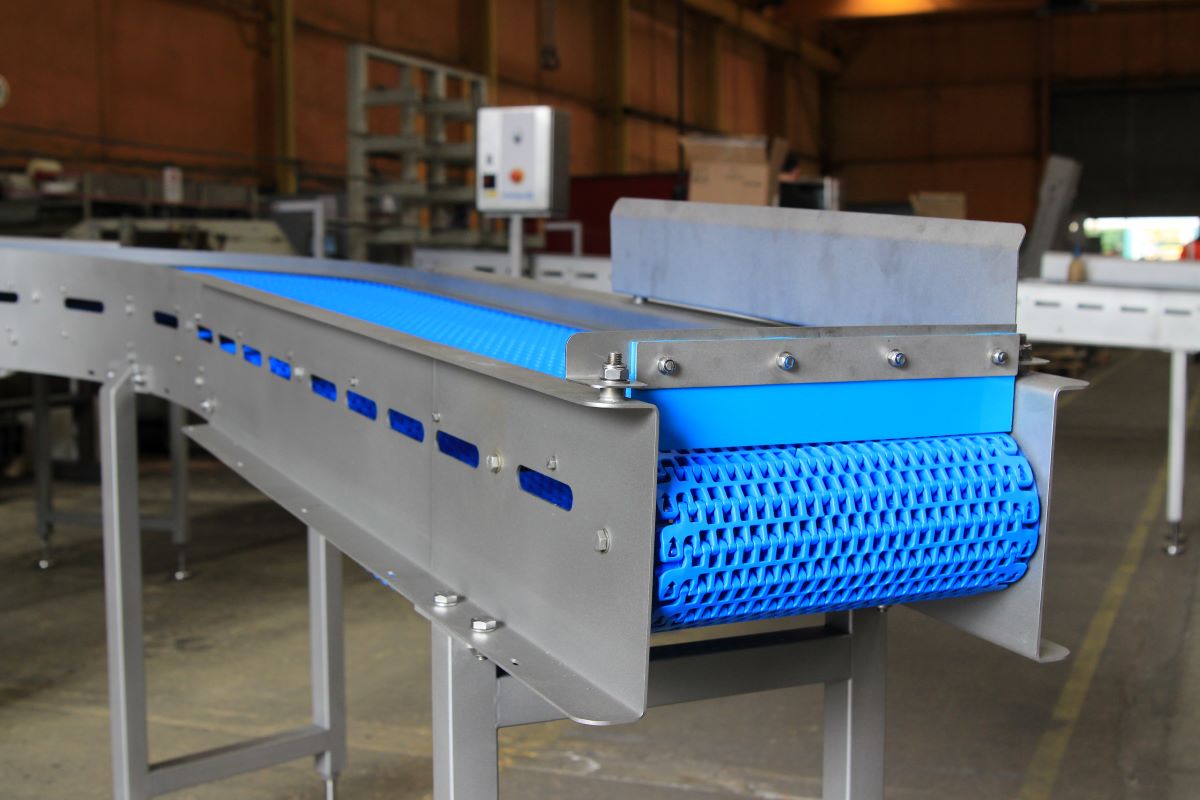In the fast-paced, high-stakes world of pharmaceuticals, efficiency, precision, and safety are non-negotiable. Whether it's…
Modular belts are popular in industrial conveyor systems because they offer durability and flexibility. These belts link individual plastic or stainless steel modules to create a sturdy belt surface.
Modular belt conveyor systems are designed for easy installation and maintenance, with the added benefit of customization to meet specific application needs. Industries like packaging, food processing, and material handling frequently use these belts.
In this article, we will address frequently asked questions about modular belt conveyor systems in industrial applications and highlight examples of industries that rely on them.

Frequently Asked Questions on Modular Belt Conveyor Systems
Can modular belt conveyor systems run on an incline?
It depends on your product, but typically, they can handle inclines up to 45 degrees without flights. For inclines steeper than 45 degrees, rubber flights are required.
Can the belt be replaced?
Yes, replacing the belt is quick and can be done within minutes.
Do plastic belts need tracking?
No, modular belts do not require tracking.
Is it possible to accumulate products on a modular belt conveyor?
Yes, depending on your product, different materials from low friction to high grip are available. Choosing the right belt is crucial, and Wrightfield engineers can recommend the best option for your application.
Is modular belting flat?
While it typically has a mesh finish, flat belts are also available.
Are modular belts more expensive than traditional belt conveyors?
Modular belts are slightly more expensive but last longer, are easier to clean, and are much simpler to replace compared to flat belts.
What sizes of modular belt conveyors does Wrightfield supply?
Our standard range is from 100mm to 800mm wide, but we can manufacture any width. Contact our engineering team to discuss your specific requirements.
Can flights be fitted?
Yes, flights from 20mm to 150mm can be fitted and pitched at any distance.
Can a plastic belt conveyor go around corners?
Yes, navigating corners is easily achievable with plastic belts.
Can raw food be transported on this type of belt?
Yes, most products can be transported on modular belt systems, but it’s essential to choose the right type of belt. A key advantage of plastic modular belts is their ease of cleaning.
Do plastic modular belts stretch?
Yes, they can stretch by up to 10% of their length. Once the belt is broken in, it will need to be re-tensioned.
For more information on Modular Belts click here and Stainless Steel Conveyor Systems click here. To see examples of our Stainless Steel Pools click here
Typical Modular Belt Applications
Modular belts are commonly used in a wide range of industries, including:
- Packaging: The packaging industry frequently uses modular belt conveyor systems to transport and sort packaged products.
- Food Processing: Food processing plants rely on these systems for efficiently transporting and sorting food products.
- Material Handling: Material handling systems utilize modular belts to transport and sort various materials, such as boxes, bags, and other items.
- Pharmaceuticals: Pharmaceutical manufacturing plants use these belts to move raw materials and finished products throughout the production process.
- Printing: Printing presses use these belt systems to transport printed materials.
- Textile: Textile manufacturing plants depend on modular belts to transport textiles and yarns.
- Automotive: The automotive industry frequently uses these belts to transport car parts.
- Electronics: The electronics industry uses modular belts to transport electronic components.
- Logistics: Logistics centers use these systems to transport packages and other items efficiently.




